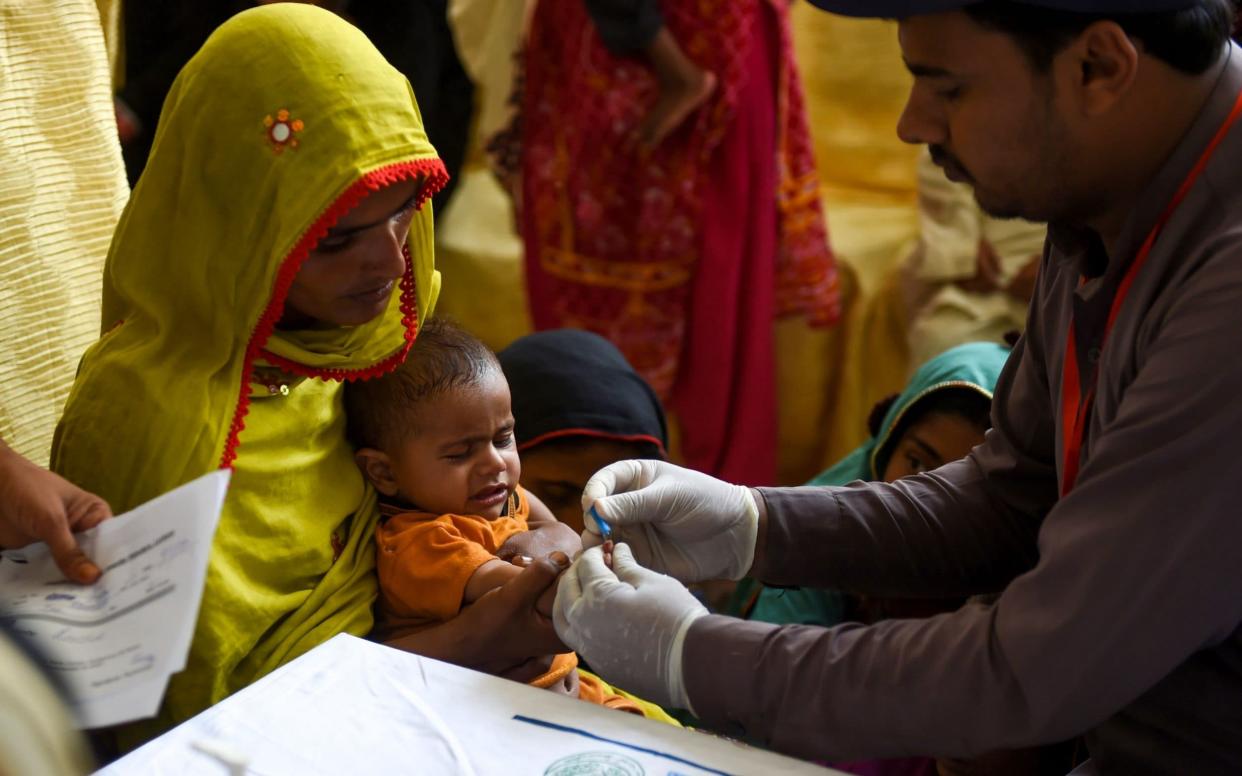More than 700 children confirmed HIV positive in Pakistan disease outbreak

More than 700 have children have now been found to be infected with HIV in a huge outbreak in southern Pakistan, making up more than 80 per cent of those who tested positive for the virus.
An outbreak of the virus in Sindh province prompted the World Health Organization to carry out a screening programme, which found 876 people to be infected with the virus - 82 per cent of whom were under the age of 15.
The outbreak, which was first discovered in April, has been described as unprecedented in Asia because of the large numbers of children affected.
The virus, which attacks the immune system and, if untreated, leads to AIDS, is thought to have been spread by unqualified “quack” doctors and sloppy hygiene at clinics.
Reusing needles and poor sterilisation of medical and dental instruments is common in the backstreet clinics which are often the only source of medical care for many Pakistanis.
The WHO said more than 30,000 people had been screened since the discovery of the outbreak in Ratodero Taluka in Larkana district.
Questioning of those affected found that risk factors likely to have spread the virus included unsafe intravenous injections during medical procedures; unsafe child delivery practices; unsafe practices at blood banks; poorly implemented infection control programs; and improper collection, storage, segregation and disposal of hospital waste.
Larkana has now had four outbreaks since 2003. The first, in 2003, was among injecting drug users, the second was among 12 patients in a paediatric hospital in 2016, and the third, also in 2016, was among 206 patients in a dialysis unit.
Epidemiologists are continuing to study the latest outbreak to determine if it is isolated, or whether these cases represent "the tip of the iceberg of a larger epidemic”.
The outbreak was first detected when a health worker noticed several child patients were finding it difficult to shake off fevers and not responding to medicine. When the worker referred each for testing, all were found to be HIV positive.
There is a high risk of the disease spreading further, officials have warned.
The WHO says HIV infections are increasing in Pakistan at an alarming rate. The current prevalence is estimated to be less than one per cent, or 150,000 people, but the number is thought to be increasing by 20,000 a year. However only one in 50 women and one in 25 men have ever been tested.
Drug treatment remains scarce for the poor in Pakistan. More than 6,000 people died from AIDS in 2018.
Protect yourself and your family by learning more about Global Health Security

